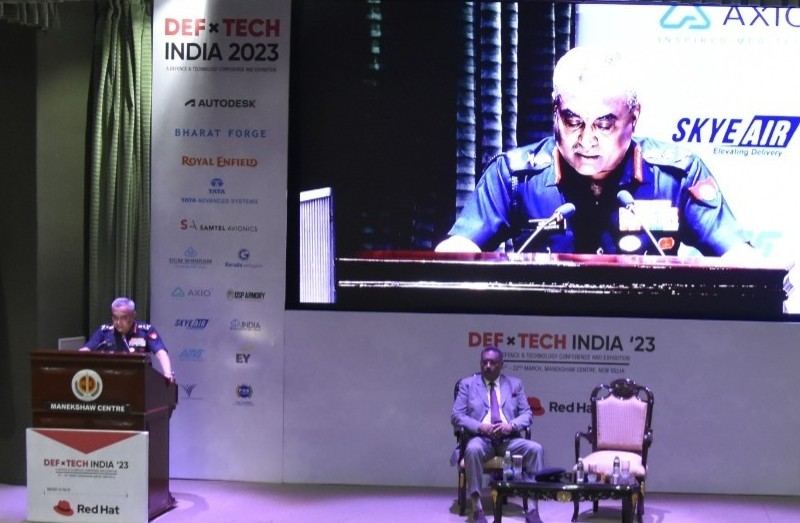
Army Chief General Manoj Pande addressing the 'PHDCCI DEF X TECH INDIA 2023' event in New Delhi on Wednesday. (Photo: Indian Army/ Twitter)
NEW DELHI (PTI): The Russia-Ukraine conflict has proved false the assumption of future wars being short and swift, and the relevance of "hard power" stands reaffirmed, Chief of Army Staff General Manoj Pande has said while stressing on indigenisation of defence production and technological development.
In his address at the 'PHDCCI DEF X TECH INDIA 2023' on Wednesday, the Army Chief warned about the "legacy of unsettled borders" that India has and highlighted the "grey-zone aggression" concept, saying it is increasingly becoming a preferred strategy for conflict resolution.
"The current Russia-Ukraine conflict provides some very valuable pointers. The relevance of hard power stands reaffirmed with land continuing to be the decisive domain of warfare and notion of victory still being land-centric," he said while talking about the lessons learnt from the conflict.
"The suppositions on duration of war I think needs to be re-evaluated. Short, swift war which we have been talking of for some time now may prove to be a false assumption and we need to be prepared for a full spectrum conflict even for a prolonged duration," the Army Chief said.
He said one of the major takeaways is that India needs to wean away from import dependency. "The pursuit to infuse technology in our war fighting system indeed remains an enduring one," Gen Pande said.
Long-range precision fires have proved that distances need not necessarily grant or guarantee safety, and air is no longer dominated just by manned aircraft, he said. "Drones, loiter ammunition, shoulder fired air defence missiles, manned, unmanned systems have democratised the air littoral," the Army Chief said.
He also mentioned the sinking of Russian Navy guided missile cruiser Moskva in April last year.
"Sinking of Moskva with just two hits of anti-ship cruise missiles highlights that even in the maritime domain, weapon platforms are more vulnerable than ever to low-cost defence systems," he said.
"Technology I believe has also emerged as a new strategic arena of geo-political competition," General Pande said. "The conclusion that we can draw is that self sufficiency in critical technologies and investment in R&D (research and development) is an inescapable strategic imperative. The security of nations cannot be outsourced, nor can it be dependent on other nations," he said.
On modernisation, he said the Indian Army has identified 47 niche technologies for military application, but also stressed on balancing the new and the old.
At present, 47 per cent of the Indian Army's equipment are vintage, 41 per cent are current, while 12 per cent are state-of-the-art equipment, Gen Pande said.
"By 2030, we will have 20 per cent vintage equipment, 35 per cent current and 40-45 percent state-of-the-art systems wherein the contribution from the Indian industry is going to be critical," he said.
The Army Chief also stressed on the need to synergise with other services for better interoperability and better compatibility.
"It is critical that we harmonise our requirements. As we go for jointness, this is going to be key," he said. Talking about "grey-zone aggression", he said it is increasingly becoming a preferred strategy of conflict resolution, with its scope enhanced by technological developments. "Our adversary's pursuit in grey zones continues even as we speak," he said.
He said India's legacy challenge of unsettled borders continues and it is important to recognise that infirmities in border management can lead to a wider conflict.
"These entail all aspects under the ambit of security and not just exclusive to the military domain. We need capabilities not just to negate such attacks, but need to keep our adversaries in a reactionary mode perpetually," Gen Pande said.
He also stressed that the prolonged commitment to counter-terror and counter-insurgency operations should not affect our conventional response preparedness.
 Previous Article
Previous Article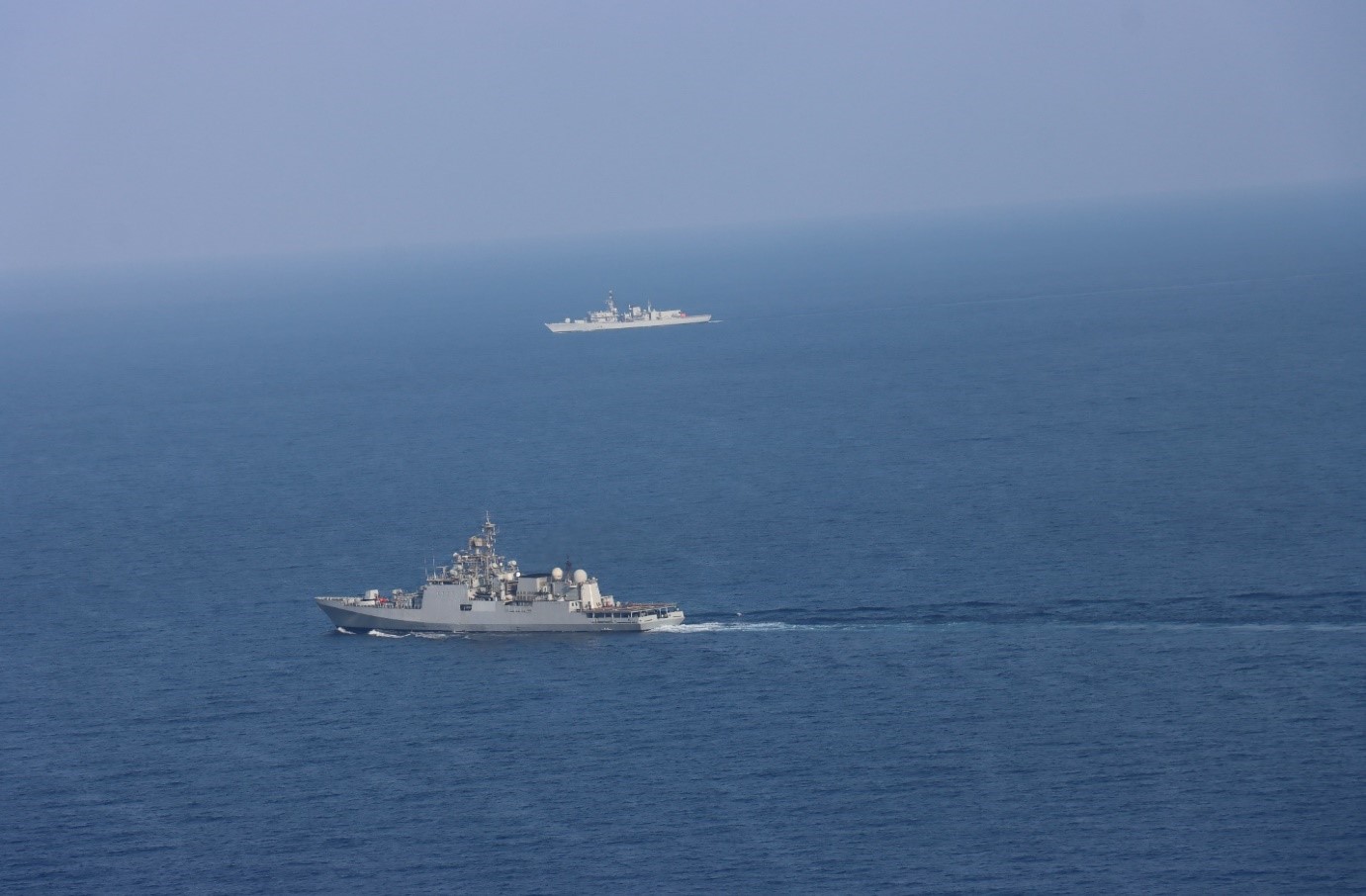 Next Article
Next Article
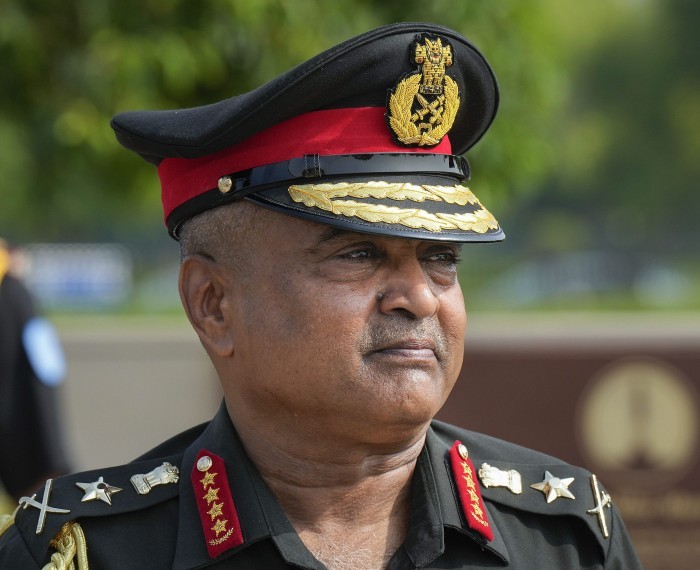
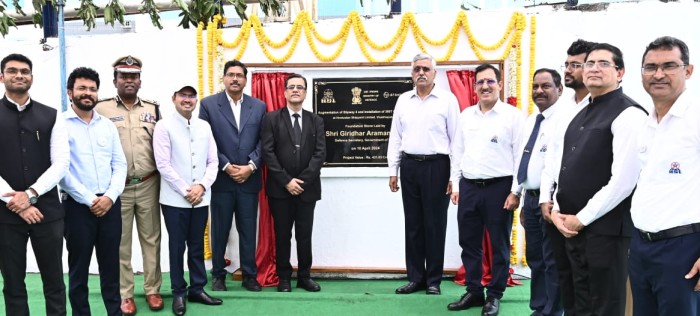

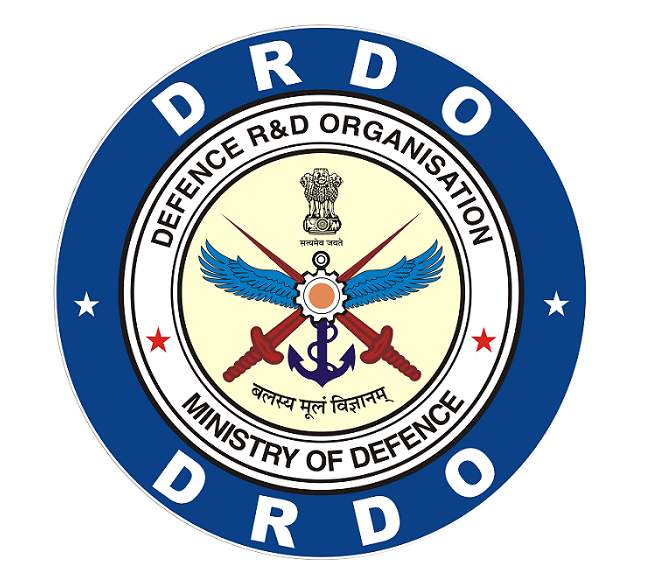

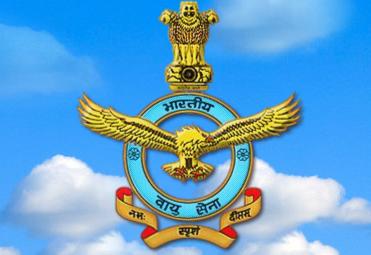
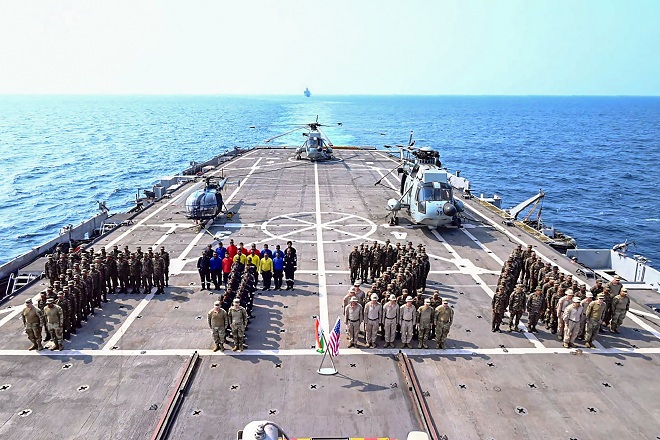

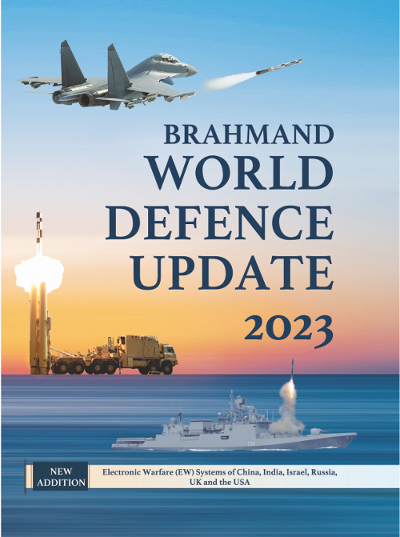




The Indian Air Force, in its flight trials evaluation report submitted before the Defence Ministry l..
view articleAn insight into the Medium Multi-Role Combat Aircraft competition...
view articleSky enthusiasts can now spot the International Space Station (ISS) commanded by Indian-American astr..
view article